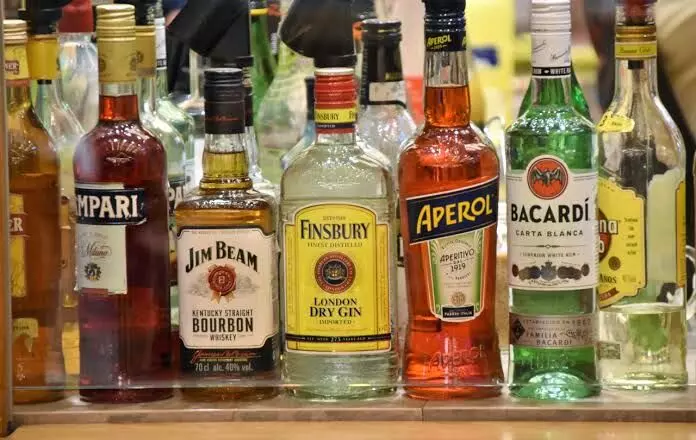Liquor prices set to increase by Rs 10-40 in Telangana from May 19
Manufacturers and suppliers will not receive a corresponding price increase
By Newsmeter Network
Representational Image.
Hyderabad: Liquor prices in Telangana are set to increase by Rs 10 to Rs 40 from Monday.
This follows a revised pricing announced by the Prohibition and Excise and Telangana Beverages Corporation Limited (TGBCL).
The state government expects to generate an additional Rs 170 crore in monthly revenue through the price revision. Officials have been instructed to ensure that the revised rates are displayed in all IMFL depots and liquor outlets.
As per the new rates, a 180ml quarter bottle of Indian Made Foreign Liquor (IMFL) will cost Rs 10 more, a 350ml half bottle will see a Rs 20 hike, and a 750ml full bottle will be dearer by Rs 40. However, the hike will not apply to low-cost liquor or ready-to-drink options like breezers.
This move follows a similar increase in beer prices by 15 per cent implemented a few months ago. The price of Kingfisher Ultra beer (650ml) has increased significantly in Telangana, now retailing at Rs 250, up from the earlier Rs 210. The price revision follows closely on the heels of a supply dispute involving United Breweries Limited (UBL) and the TGBCL.
In the financial year 2023–24, liquor sales contributed approximately Rs 34,000 crore to the state’s revenue. The government has now set an ambitious target of Rs 40,000 crore for the ongoing fiscal year. The decision to increase prices comes in the wake of a series of high-level meetings aimed at boosting state revenues and setting departmental targets.
The excise department recently convened discussions with senior officials, leading to the issuance of a circular on Sunday that formalized the hike. The new pricing structure will impact over 2,000 liquor brands across the state, but will affect only end consumers.
Manufacturers and suppliers will not receive a corresponding price increase, as the rate contract allows them a revision only once every two years, the last of which occurred in 2023. Industry sources indicate that rising production costs are putting pressure on suppliers, making it harder to sustain distribution at current rates.